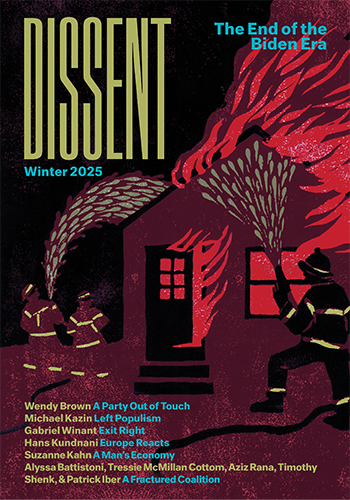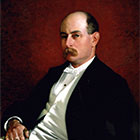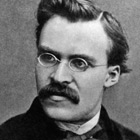
The Politics of Comparison
Chris Hayes’s A Colony in a Nation seeks to elevate the Movement for Black Lives by placing it on a par with the American Revolution, but his analysis carries troubling implications.


Chris Hayes’s A Colony in a Nation seeks to elevate the Movement for Black Lives by placing it on a par with the American Revolution, but his analysis carries troubling implications.

How the “Boston Brahmins” of the late nineteenth century laid the foundations for modern American capitalism.

How did a sculptor with neo-Confederate leanings find a home in one of the twentieth century’s most influential liberal salons?

We don’t need to de-politicize Nietzsche to save him from fascist appropriation.

The EU provides a convenient villain for those eager to blame the rise of neoliberalism on unelected bureaucrats acting at the behest of capital. But if historians are correct, this account is a fable that distracts from a grimmer reality.

Valeria Luiselli discusses her new book Tell Me How It Ends: An Essay in 40 Questions, about her experience translating in a federal immigration court.

In his response to my review, Abrams concedes my major criticism: that the book did not investigate the symbiotic link between the school privatization movement and efforts to eviscerate teacher unions.

My book did not tell the story of the unionization effort at a KIPP school in Brooklyn in 2009 primarily from the perspective of the organization’s management, as Leo Casey contends.

Samuel Abrams’s Education and the Commercial Mindset provides the most detailed analysis of school privatization to date, yet overlooks the critical role that anti–union animus plays in fueling it.

In the early 1990s Pelican Bay Prison was a cesspool of brutality. But in ending its worst years, did a judge civilize the cruel practice of solitary confinement?

It is no accident that our age of hyper-capitalism is also one of aggressive “family values,” pursued in popular culture and legislation alike.

In his quietly devastating book Another Day in the Death of America, Gary Younge argues that all Americans, not just the ones who pull the trigger, are complicit in gun violence.

Somewhere between the apostles and Joel Osteen, mainstream Christianity turned from a wellspring of egalitarian promise into yet another exponent of the market gospel. Two new books chart where things went wrong.

Two new histories show how the CIO of the 1930s and ’40s led the charge for racial equality not just on the shop floor but at the national level, precipitating the Democratic Party’s embrace of civil rights.

A new collection of Elena Ferrante’s correspondence and interviews illuminates how Ferrante pulled away from a male-dominated tradition to define her own genre of popular feminist literature.